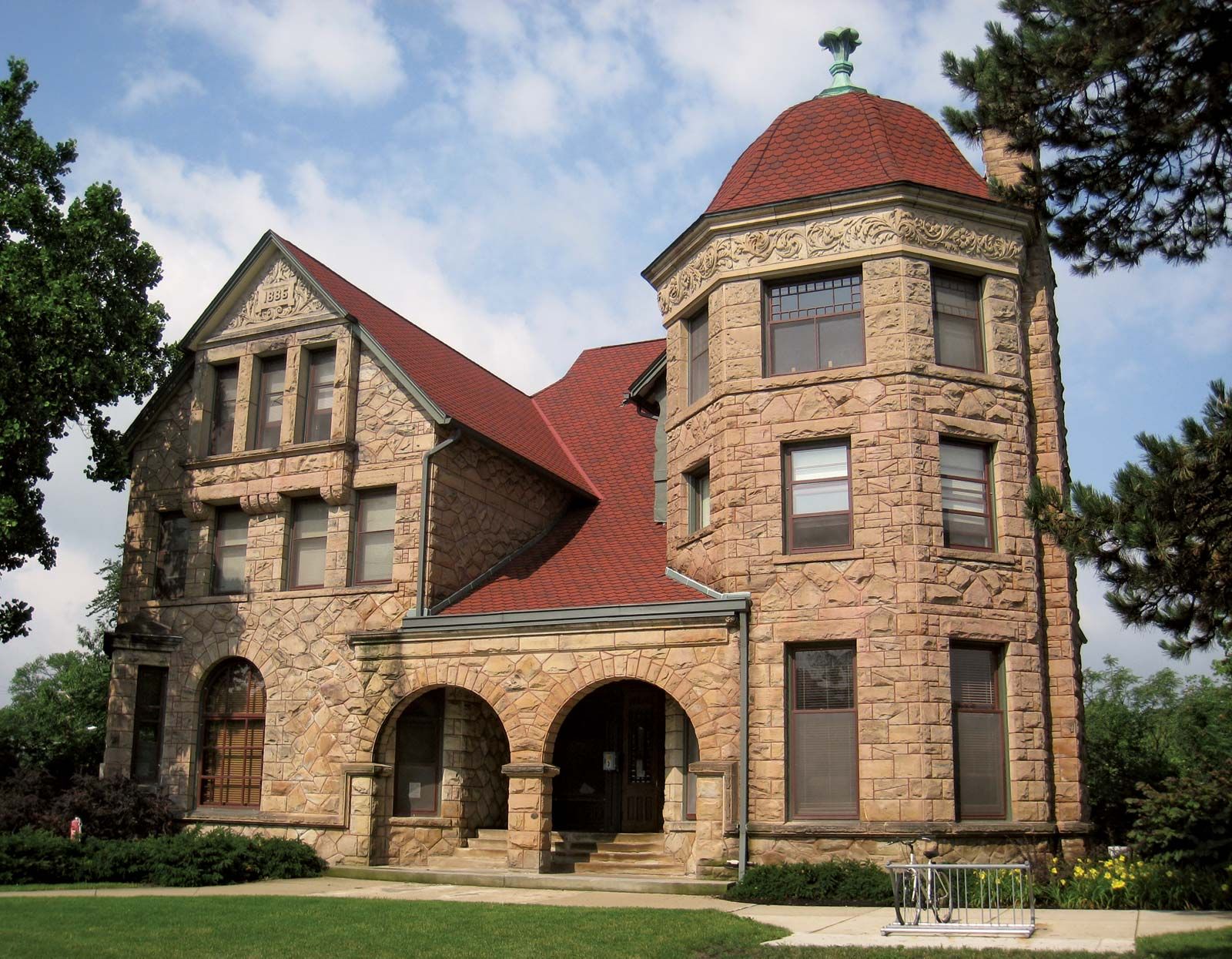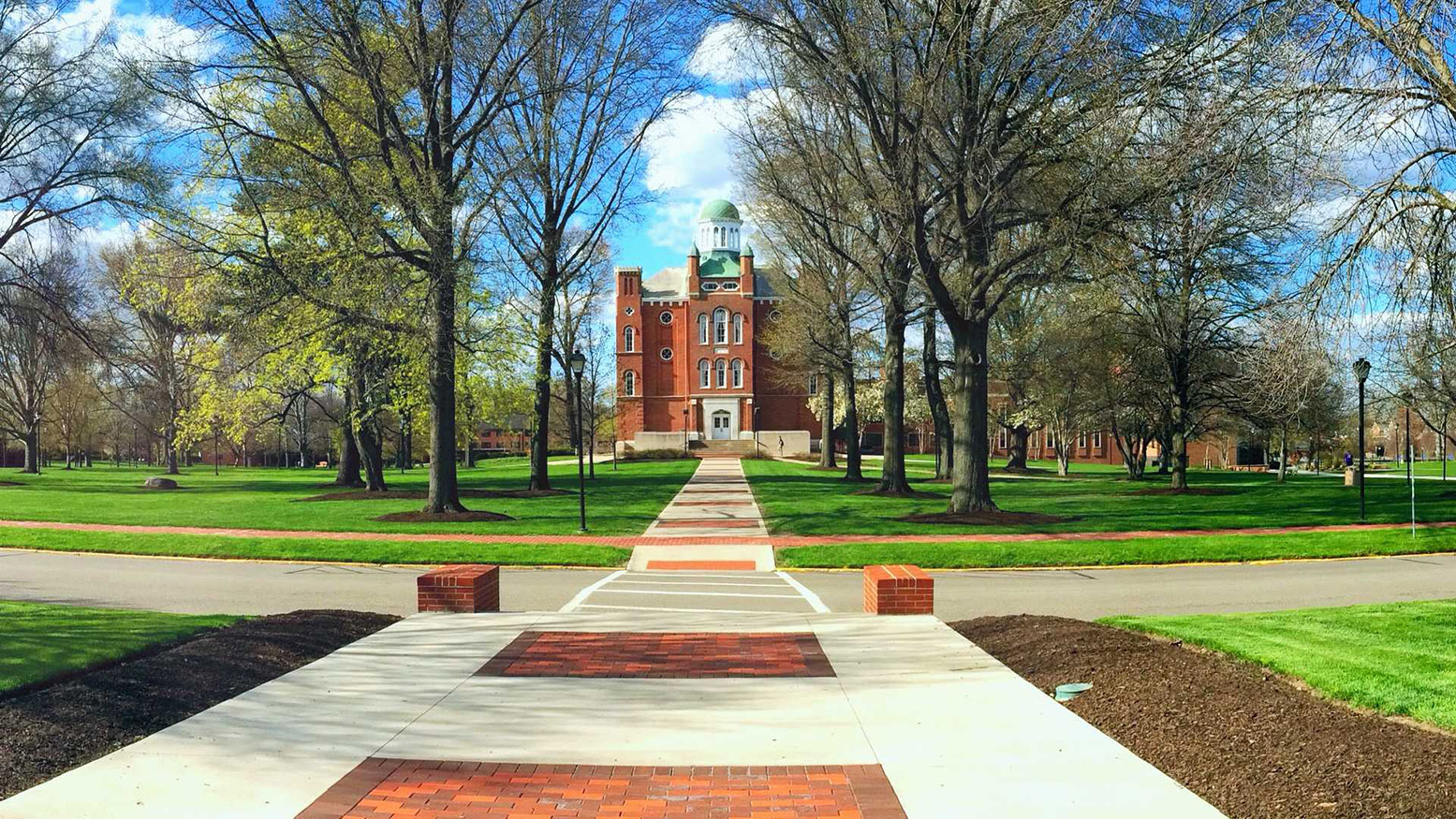Ohio is home to many small colleges that offer a unique and personalized educational experience for students.
These institutions pride themselves on fostering a tight-knit community of scholars where students can receive individualized attention from professors and engage in meaningful academic and social experiences.
With so many options available, finding the best small college in Ohio can be daunting. In this article, we’ll explore some of the top small colleges in Ohio and what sets them apart so that you can make an informed decision about where to continue your education.
So, let’s dive in and discover the hidden gems of Ohio’s small college scene!

Table of contents
- Why Should You Consider Going To The Best Small Colleges In Ohio?
- How Do Small Colleges In Ohio Compare To Larger Universities In The State?
- What Are The Admission Requirements For Small Colleges In Ohio?
- What Types Of Majors And Programs Are Available At Small Colleges In Ohio?
- How Do Small Colleges In Ohio Support Students Academically And Socially?
- What Is The Average Cost Of Tuition At Small Colleges In Ohio?
- How Do Small Colleges In Ohio Rank In Terms Of Graduation Rates And Job Placement After Graduation?
- 10 Best Small Colleges In Ohio
- Frequently Asked Questions
- Conclusion
- References
- Recommendations
Why Should You Consider Going To The Best Small Colleges In Ohio?
There are several compelling reasons to consider attending the best small colleges in Ohio. First, these institutions offer a more personalized educational experience, with smaller classes and individualized attention from professors. This can significantly benefit students who thrive in a supportive, close-knit community.
In addition, many small colleges in Ohio offer a wide range of academic programs and extracurricular activities, allowing students to explore their interests and develop their skills in various areas.
Small colleges may also offer more opportunities for experiential learning, such as internships, research projects, and service learning, which can help students gain valuable experience and prepare for their future careers.
Attending a small college in Ohio can be more affordable than attending a more prominent university, with lower tuition and other expenses. This can help students avoid high debt levels and better manage their finances while pursuing their academic and career goals.
Check out this U.K university: 10 Best Universities for Criminology in the UK | 2023
How Do Small Colleges In Ohio Compare To Larger Universities In The State?
Small colleges in Ohio offer a more personalized and intimate academic experience than prominent universities. They typically have smaller class sizes, which allows for more individualized attention from professors and fosters a closer-knit community among students. Small colleges in Ohio also tend to focus intensely on undergraduate education, with faculty who prioritize teaching and mentoring students.
On the other hand, larger universities in Ohio may offer more diverse academic programs, research opportunities, and more resources and facilities for students. They also tend to have more extensive and diverse student populations, providing opportunities for students to engage with broader perspectives and experiences.
Choosing between a small college and a more prominent university in Ohio will depend on individual preferences and goals. Small colleges may better fit students who value a more personalized academic experience and closer relationships with faculty. In comparison, larger universities may better fit students seeking a more comprehensive range of educational programs and resources.
Read this similar article:10 Best Small Colleges in Massachusetts | 2023 Apply Now
What Are The Admission Requirements For Small Colleges In Ohio?
Admission requirements for small colleges in Ohio can vary by institution. However, some standard requirements may include the following:
High School Transcript
Applicants are usually required to submit an official high school transcript showing their academic performance in high school. This will typically include information on GPA, class rank, and any advanced courses taken.
Standardized Test Scores
Some small colleges in Ohio may require standardized test scores like the SAT or ACT. However, an increasing number of schools are becoming test-optional or test-flexible, meaning they don’t need test scores or allow students to submit alternative assessment forms.
Check out: 10 Best Universities for Biomedical Sciences in the UK | 2023
Letters of Recommendation
Many small colleges in Ohio will require applicants to submit letters of recommendation from teachers, counselors, or other professionals who can speak to their academic abilities and personal character.
Personal Essay
Applicants may submit a personal essay or statement of purpose that explains why they want to attend the college and what they hope to achieve there.
Extracurricular Activities
Small colleges in Ohio may also consider a student’s extracurricular activities, community service, and leadership experience when evaluating applications.
It’s essential to note that admission requirements can vary widely between institutions, so students should always consult the admissions website or contact the admissions office directly for specific information about a particular college’s requirements.
Check out this U.K university: 10 Best Universities for Physics in the UK | 2023
What Types Of Majors And Programs Are Available At Small Colleges In Ohio?
Small colleges in Ohio offer various majors and programs across multiple disciplines, including the liberal arts, sciences, and professional fields. Some small colleges in Ohio may have a particular focus or strength in certain areas, such as:
STEM fields (Science, Technology, Engineering, and Math)
Many small colleges in Ohio offer vital science programs, including biology, chemistry, physics, and computer science. These programs may emphasize hands-on learning, research opportunities, and collaboration with faculty.
Education and Teaching
Small colleges in Ohio may offer programs for students interested in pursuing careers in education, including teacher certification programs and degrees in areas like early childhood education, special education, and educational leadership.
Read this similar article: BMAT Universities In 2023 | 10 Best BMAT Schools in the UK
Business and Economics
Some small colleges in Ohio have vital programs in business and economics, offering majors in accounting, finance, marketing, and management. These programs may also include opportunities for internships and practical experience.
Health Sciences
Many small colleges in Ohio offer programs in the health sciences, including nursing, pre-med, and other allied health fields like physical therapy, occupational therapy, and speech-language pathology.
Check out: 10 Best Small Midwest Colleges In 2023| Apply Now
Fine Arts and Performing Arts
Small colleges in Ohio may offer vital programs in the fine arts, including visual art, music, theater, and dance. These programs may include opportunities for performance, exhibition, and collaboration with professional artists.
Small colleges in Ohio often provide a supportive environment for students academically and socially. Here are a few ways in which small colleges in Ohio may support their students:
- Small class sizes: Small colleges in Ohio typically have smaller classes than more prominent universities, allowing for more individualized attention from professors and a more significant opportunity for class participation and discussion.
- Accessible faculty: At small colleges in Ohio, faculty members are often more accessible to students, providing personalized attention and guidance on coursework and career goals.
- Academic support services: Small colleges in Ohio may offer various educational support services, such as tutoring, writing centers, and academic advising to help students succeed in their coursework.
- Community-building opportunities: Small colleges in Ohio often offer a close-knit community where students can form strong bonds with their peers, professors, and staff. This can foster a supportive environment for social and emotional growth.
- Student organizations and activities: Small colleges in Ohio may offer a variety of student organizations and activities, including clubs, sports teams, and social events. These can provide opportunities for students to get involved on campus, develop leadership skills, and connect with their peers.
Small colleges in Ohio often prioritize individual attention and student support, creating a supportive environment where students can thrive academically and socially.
Check out: 10 Best Private Universities In California| 2023 Apply
What Is The Average Cost Of Tuition At Small Colleges In Ohio?
The average cost of tuition at small colleges in Ohio can vary widely depending on the institution, its location, and the student’s residency status. However, according to College Navigator, a National Center for Education Statistics database, the average annual tuition and fees for small private nonprofit colleges in Ohio for the 2021-2022 academic year are $33,218.
This is compared to the average annual tuition and fees for public colleges and universities in Ohio, which is $11,661 for in-state students and $19,051 for out-of-state students. However, it’s important to note that tuition and fees are just one part of the overall cost of attending college. Students should also consider additional expenses such as room and board, textbooks, and personal expenses.
Additionally, many small colleges in Ohio offer financial aid and scholarships to help offset the cost of tuition and fees for eligible students.
Check out this U.K university: Best Universities For Biology In the U.K | 2023
How Do Small Colleges In Ohio Rank In Terms Of Graduation Rates And Job Placement After Graduation?
The graduation rates and job placement outcomes of small colleges in Ohio can vary widely depending on the institution and the individual student’s experience. However, small colleges in Ohio have generally been successful in graduating their students and preparing them for successful careers.
According to data from College Scorecard, a tool created by the U.S. Department of Education to help students make informed decisions about college, the average graduation rate for small private nonprofit colleges in Ohio is 64%. This is compared to an average graduation rate of 45% for public colleges and universities in Ohio.
Regarding job placement after graduation, many small colleges in Ohio have strong career services departments that work with students to prepare them for the job market. Small colleges in Ohio may offer various career services, such as job fairs, resume and interview workshops, and connections to alum networks and employers. Additionally, many small colleges in Ohio have strong relationships with local employers and may offer internship and co-op opportunities to students.
While specific job placement data is not available for all small colleges in Ohio, many institutions have reported high employment and graduate school enrollment rates for their graduates. For example, according to data from the National Association of Independent Colleges and Universities, 95% of graduates from small private colleges in Ohio were employed or enrolled in graduate school within six months of graduation.
Small colleges in Ohio have generally been successful in graduating their students and preparing them for successful careers, thanks partly to their emphasis on individualized attention and supportive environments.
Read this similar article: Best Criminology Universities In UK | 2023
10 Best Small Colleges In Ohio
#1. Oberlin College

Located in Oberlin, Ohio, Oberlin College is a highly selective liberal arts college known for its vital academic programs and commitment to social justice. It has a student-to-faculty ratio of 9:1 and an average class size of 16.
Check out: Small New York NY Colleges In 2023 | Apply Now
#2. Kenyon College
Located in Gambier, Ohio, Kenyon College is a private liberal arts college known for its strong English and creative writing programs. It has a student-to-faculty ratio of 9:1 and an average class size of 15.
#3. Denison University

Located in Granville, Ohio, Denison University is a private liberal arts college known for its strong natural and social sciences programs. It has a student-to-faculty ratio of 9:1 and an average class size of 16.
Check out: 10 Best Universities in the UK for Marketing in 2023
#4. Wooster College
Located in Wooster, Ohio, The College of Wooster is a private liberal arts college known for its independent solid study program and commitment to undergraduate research. It has a student-to-faculty ratio of 10:1 and an average class size of 15.
#5. Ohio Wesleyan University

Located in Delaware, Ohio, Ohio, Wesleyan University is a private liberal arts college known for its robust international studies and business programs. It has a student-to-faculty ratio of 9:1 and an average class size of 16.
Check out: 10 Best Small Engineering Colleges in 2023 | Apply Now
#6. Baldwin Wallace University
Located in Berea, Ohio, Baldwin Wallace University is a private university known for its strong music and performing arts programs. It has a student-to-faculty ratio of 11:1 and an average class size of 20.”
#7. Hiram College

Located in Hiram, Ohio, Hiram College is a private liberal arts college known for its strong science and math programs. It has a student-to-faculty ratio of 11:1 and an average class size of 14.
Check out this U.K university: 10 Best Universities for Criminology in the UK | 2023
#8. Heidelberg University
Located in Tiffin, Ohio, Heidelberg University is a private university known for its strong programs in education and business. It has a student-to-faculty ratio of 12:1 and an average class size of 15.
#9. Marietta College
Located in Marietta, Ohio, Marietta College is a private liberal arts college known for its strong petroleum engineering and environmental science programs. It has a student-to-faculty ratio of 12:1 and an average class size of 17.
Read this similar article:10 Best Small Colleges in Massachusetts | 2023 Apply Now
#10. University of Mount Union

Located in Alliance, Ohio, The University of Mount Union is a private university known for its strong nursing, business, and education programs. It has a student-to-faculty ratio of 13:1 and an average class size of 19.
It’s important to note that every student has different priorities and preferences when choosing a college. Hence, it’s essential to do thorough research and visit each school to determine if it fits you.
Check out: 10 Best Universities for Biomedical Sciences in the UK | 2023
Frequently Asked Questions
Attending a small college in Ohio offers many advantages, such as smaller class sizes, personalized attention from professors, and a strong sense of community. Small colleges often provide more opportunities for students to participate in research projects, internships, and other experiential learning opportunities, which can benefit future career prospects.
Choosing the right college can be daunting, but there are a few key factors to consider. Think about what type of academic programs and extracurricular activities you are interested in, as well as the size and location of the school.
Small colleges in Ohio offer many majors and programs, including liberal arts, business, engineering, nursing, and more. Some schools may specialize in certain areas, such as the arts or technology, while others offer a broader range of programs.
Small colleges in Ohio offer a more intimate and personalized educational experience than more prominent universities. While larger universities may have more resources and a wider range of programs, small colleges provide more opportunities for individualized attention from professors, mentorship, and a tight-knit community of scholars.
The cost of tuition at small colleges in Ohio varies depending on the institution and the program. However, on average, tuition at small colleges in Ohio is lower than at larger universities. Considering other expenses, such as room and board, textbooks, and fees, is essential when estimating the total cost of attending a small college in Ohio.
Conclusion
Ohio’s small colleges offer a unique and valuable educational experience for students seeking a personalized and supportive community. With a wide range of academic programs, state-of-the-art facilities, and dedicated faculty, these institutions provide an ideal setting for students to pursue their passions and achieve their educational and career goals.
Whether you’re looking for a small liberal arts college or a specialized school in a particular field, Ohio’s small college scene has something for everyone. So, take the time to explore your options, visit campuses, and find the small college in Ohio that is the perfect fit for you. Your future awaits!
Finally, read: 10 Best Universities for Physics in the UK | 2023
References
Recommendations
- 10 Best Small Engineering Colleges in 2023 | Apply Now
- 10 Best Universities for Criminology in the UK | 2023
- 10 Best Small Colleges in Massachusetts | 2023 Apply Now
- 10 Best Universities for Biomedical Sciences in the UK | 2023
- 10 Best Universities for Physics in the UK | 2023
- BMAT Universities In 2023 | 10 Best BMAT Schools in the UK




